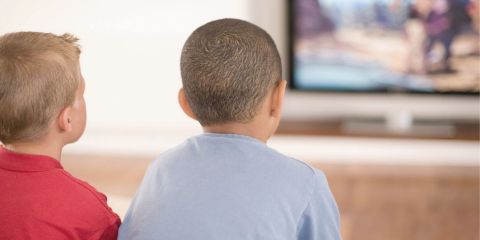Key Points
- Lessons learned from reading books are more varied than those experienced in day to day life
- Stimulates parts of the brain associated with meaning which promotes brain development and imagination
- Creates experiences that increases parental bonding and intimacy with children
- Has impacts later in life that can improve spelling and confidence at later ages
- Story telling is the best alternative to screen time
Reading to children has long been recognised as playing a significant positive role in their development, for all sorts of reasons. Numerous scientific and observational studies show that children who have been read to regularly from an early age enjoy a host of advantages, including higher educational attainment, enhanced confidence and even improved cognitive development.
What is harder to measure are the emotional and behavioural benefits which a story can have. From providing a valuable part of any bedtime routine through to offering a great opportunity to use imagination, the qualitative advantages of being read to are enormous.
Here we consider the range of added value which reading aloud to small children can bring, alongside taking a look at some of the research which supports the conclusions drawn.
Reading Increases Bonding Time With Kids
Few activities provide such a perfect opportunity to bond as sharing a story together. Not only is there a story to enjoy, but cuddling up together for storytime provides important physical closeness which is particularly important for younger children.

Parents lead hectic lives, which means that scheduling time to focus solely on children is difficult. Reading together is a chance to put everything else on hold whilst parents take the opportunity to put their children at the heart of what they're doing.
Particularly for busy working parents who rely on childcare for a significant proportion of the day, storytime can become a really special opportunity to spend quality time together.
Research suggests that reading together improves parent/child intimacy and also improves communication with your child. Stories can often act as a springboard from which to discuss wider issues, as well as a valuable aid for children who may want to discuss a worrying or difficult issue but aren't quite sure how to bring the matter up.
Having time with caregivers in a secure, safe environment provides a mutually nurturing experience which is valuable for both children and parents.
A far more imaginative alternative to screen time
There's no doubt about it, a toddlers screen time just can't take the place of real life interaction . This statement is backed by a significant number of studies, all of which point to the added benefits which person-to-person communication brings in comparison with staring at a screen.

Research by the World Health Organisation (WHO), for example, clearly shows that children should move more and sit less in order to stand the best chance of remaining in good health. Not only does it recommend that children under 5 should have no more than one hour of TV (or screen) time per day, the report also specifically recommends interactive sedentary activity with caregivers, such as reading stories or playing together.
children under 5 should have no more than one hour of TV (or screen) time per day
Engrossed by the screen, children tend to remain almost immobile whilst watching, often for hours at a time. Not only can this have an impact on joint and muscle development, but it can also lead to poorer cardiovascular function, increase the risk of obesity and even result in pain and stiffness associated with poor posture.
In addition, children who enjoy plenty of real-life interaction have been shown to enjoy plenty of added cognitive benefits. Even "educational" screen time is less beneficial than the interaction provided by real life human beings.
Kids learn valuable lessons from books
Books expose children to more situations and introduce more varied concepts than normally experienced in day-to-day life .
How often do you visit a haunted castle with towering battlements and crenelations? When was the last time you took part in a wildlife safari, meeting rhinos, monkeys, tigers and snakes along the way?

The reality is that everyday life generally includes only a limited selection of experiences, which calls for a fairly small vocabulary.
What this means for younger children is that if they're not read to, they're unlikely to pick up the wider vocabulary they need, as many words simply aren't used in routine conversations.
Reading books are available on an enormous selection of topics, it's possible to greatly extend a child's vocabulary (as well as their knowledge of the world beyond their doorstep), by regularly sharing a variety of stories together .
Although a book can't entirely take the place of lived experience, if a real-life trip on a pirate ship, a journey to a volcano or a magical expedition to the land beyond the back of the wardrobe isn't possible, a well-written story about these events is probably the next best thing.
Reading improves brain function in children
Reading is a great example of an enjoyable activity which actually provides profound benefit. Research has shown that when children are read aloud to, regions of the left-hand side of their brain (the parts associated with extracting meaning from words) are stimulated.
In preschool children listening to stories, greater home reading exposure is positively associated with activation of brain areas supporting mental imagery and narrative comprehensionOfficial Journal of the American Pediatrics
What this means is that children who are read to regularly will, on average, be more likely to enjoy better cognitive development , particularly when it comes to narrative comprehension and mental imagery.
We find this has positive and significant effects on reading skills and cognitive skills of these children.Economics of Education Review
This is a very important - considering what a simple, cheap and pleasurable activity a shared story or two can be, the fact that it can actually lay the foundations for enhanced educational attainment at a later date is well worth noting.
The best activity to teach vocabulary to preschoolers
As already indicated, reading aloud to children is a great way to extend their vocabulary, as they are hearing new words which they would otherwise not come across.

Amazingly, researchers have managed to quantify the extent to which vocabulary is improved through being read to: a recent study by Ohio State University showed that children who have been read aloud 5 books a day can hear as many as 1 million more words by the time they enter kindergarten!
With other research suggesting that, on average, a five or six-year-old would have around 25,000 - 30,000 words in their vocabulary, an additional one million words is a colossal gain simply for parents spending a few minutes a day reading aloud to their child.
Improved spelling
Reading aloud to children sets them up for academic success later in life. One way in which it does this is to familiarize children with the written word.

Even if children are too young to actually read the story, simply seeing words on a regular basis can enable them to make connections between the symbols they see on the page and meaning, as well as allow them to gain the familiarity with word forms and pronunciation to facilitate successful spelling later on in life.
A study in Psychology Bulletin suggests that even children who are not particularly strong academically can improve their outcomes by being read to on a regular basis .
It also seems to be the case that children who spend time around books and who get to discover the rewards which they offer are more likely to become enthusiastic readers in later life, perpetuating the enhanced vocabulary and superior spelling which being read aloud to bestows.
Fosters a positive attitude towards reading
Almost all small children love being read aloud to, particularly when it involves sharing quality time with a much-loved parent.

Frequently, those feelings of pleasure which are associated with books, as well as the added cognitive benefits which can make it easier for children to master reading for themselves, can mean that not only do children progress faster and further with their reading, they also are more likely to enjoy the experience.
Just because a child can read, it doesn't mean that they will necessarily enjoy it. Children who don't like reading are less likely to pursue the activity into adult life, potentially limiting their career choices as well as depriving them of the wealth of pleasure which books can provide.
Sharing stories with younger children sets them up to enjoy a pastime that can give pleasure at every stage of life.
Reading aloud improves confidence
Finally, children learn by example! Seeing and hearing adult readers reading out loud helps to give children the confidence they need to read out loud if requested.

Reading aloud confidently is also linked to children displaying confidence in other areas, potentially having a markedly positive benefit on their self-esteem.
With so many short and longer-term benefits, it's little surprise that reading aloud to children is highly recommended! Numerous studies have shown that, particularly if reading aloud takes place on a regular basis (preferably daily).
Children can enjoy improved physical health and emotional well-being, in addition to enhanced cognitive development and higher educational attainment. Reading aloud represents an excellent time investment, as well as being extremely enjoyable and rewarding: it's not just children who look forward to a good story!
There is no age which is too early to begin, or too late to continue: many adults still enjoy hearing a book read aloud! Sharing story time lays the foundations for children to develop a passion for books that often stays with them well into adulthood.
As the 1985 "Becoming a Nation of Readers" report, compiled by the government's Commission for Reading, stated:
The single most important activity for building the knowledge required for eventual success in reading is reading aloud to childrenBecoming a Nation of Readers

